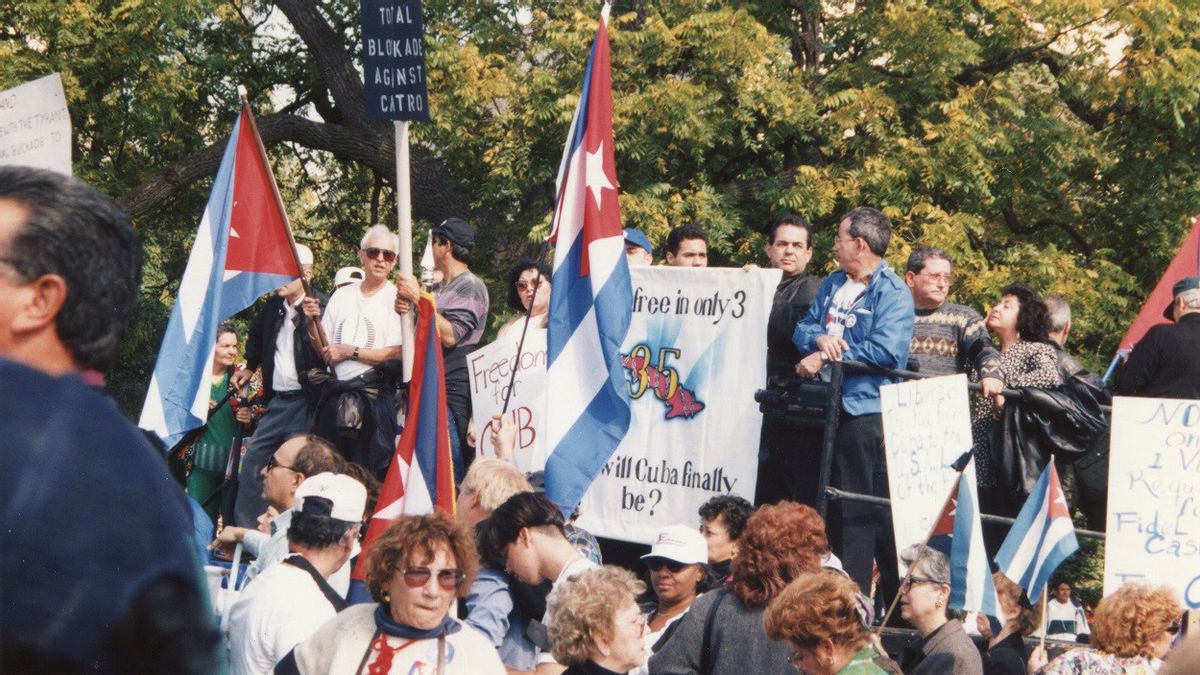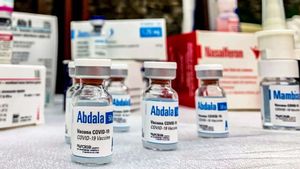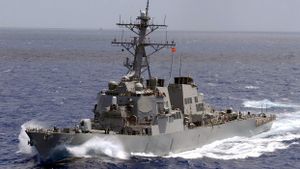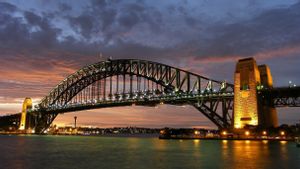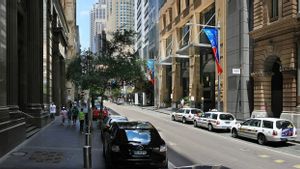JAKARTA - For the first time in decades, large-scale demonstrations have taken place in Cuba, calling for freedom and demanding President Miguel Diaz-Canel's resignation, during street protests from Havana to Santiago, Sunday, July 11 local time.
The protests erupted amid an economic crisis and a record spike in coronavirus infections, while residents complained about the government's lack of basic necessities, restrictions, and handling of the COVID-19 pandemic.
Thousands of people took to the streets in various parts of Havana including the historic center, their chants of 'Diaz-Canel withdraw' drowning out groups of government supporters who waved Cuban flags and chanted 'Fidel'.
Special forces jeeps, with machine guns mounted in the rear, were seen throughout the capital and a heavy police presence for a long time, after most of the protesters had dispersed at 9 p.m. local time, following a curfew during the pandemic.
"We are going through very difficult times. We need a change in the system", Miranda Lazara, 53, a dance teacher, joined thousands of protesters in Havana.
Diaz-Canel, who also heads the Communist Party, blamed the unrest on a longtime Cold War foe, the United States, which in recent years tightened its decades-old trade embargo, in a televised address on Sunday afternoon.
Diaz-Canel said many protesters were sincere but manipulated by US-organized social media campaigns and mercenaries on the ground, warning that further provocations would not be tolerated, calling on supporters to confront provocations.

Cuba's president will deliver another address to the country at 9 a.m. on Monday local time, according to state-run media.
Julie Chung, acting deputy secretary of the US State Department's Office of Western Hemisphere Affairs, said she was deeply concerned by calls for war" in Cuba and supported the Cuban people's right to peaceful assembly.
In Havana, security forces, assisted by suspected plainclothes officers, arrested about two dozen protesters. Police used pepper spray and beat several protesters as well as a photographer who worked for the Associated Press.
Meanwhile, protesters vented their anger on an empty police car, overturned it, and then threw stones at it. Elsewhere, they shouted "oppressors" at riot police.
Some protesters said they took to the streets to join in after seeing what was happening on social media, which has become an increasingly important factor since the introduction of mobile internet two and a half years ago, despite unstable connections.
Separately, assistant professor of Latin American history at Florida International University Michael Bustamante said the anti-government demonstrations this time were the largest since the summer of 1994.
"Only now, they are not limited to the capital city. They don't even start there, it seems", said Bustamante.
SEE ALSO:
Cuba has experienced a worsening economic crisis over the past two years, with the government blaming US sanctions, while the opposition cites the impact of the Soviet-style one-party system. A combination of sanctions, inefficiency, and the pandemic has shut down tourism and slowed Cuba's economy.
Meanwhile, regarding its handling of COVID-19, Cuba has started a mass COVID_19 vaccination campaign, with 1.7 million of its 11.2 million population vaccinated to date, twice as many as having received at least one shot.
However, the arrival of the Delta variant has pushed infection cases soaring, with health authorities reporting a record 6.923 cases and 47 deaths as of Sunday. Cuba's total recorded 238.491 infections with 1.537 deaths and 204.810 recoveries from COVID-19, citing Worldometers data.
The English, Chinese, Japanese, Arabic, and French versions are automatically generated by the AI. So there may still be inaccuracies in translating, please always see Indonesian as our main language. (system supported by DigitalSiber.id)
